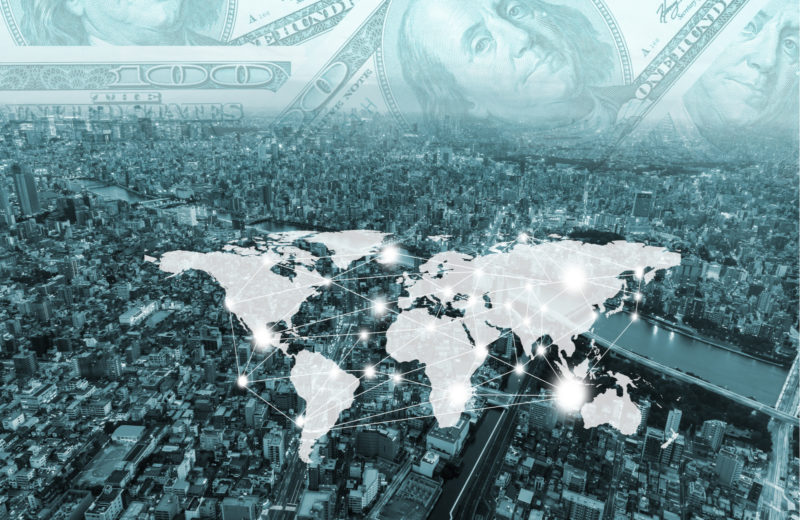Trade Policy Should Not Be Contingent on the Behavior of Foreign Governments

Protectionists are clever at devising superficially plausible excuses for their obstructions of people’s freedom to trade. A recent instance in the United States is Democrats’ and progressives’ demand that the “new NAFTA” — called “USMCA” (for “U.S.-Mexico-Canada Agreement”) — “protect” the “rights” of workers in Mexican auto plants by effectively requiring that many of these workers enjoy wages and workplace conditions similar to the wages and conditions workers enjoy in the U.S. and Canada.
But because Mexico is a much poorer country than are its northern neighbors, Mexicans cannot afford to have wages as high, and workplace conditions as nice, as now are commonplace throughout the U.S. and Canada. And so by insisting that auto production in Mexico be conducted similarly to how auto production is conducted in wealthier countries, protectionists in the U.S. prance publicly as champions of the downtrodden while they understand privately that their demands, if met, will simply shift more auto production from Mexico to the U.S. American auto workers will be artificially enriched at the larger expense of Mexican workers (who will be harmed by the resulting loss of capital investment in that country) and of auto buyers throughout North America (who will suffer from the resulting higher prices of automobiles).
Actually, in this case the American public is so uncritical of protectionists’ excuses that the Democrats and progressives pushing for what they know to be unrealistic labor “rights” in Mexico can risk revealing their true motives. In making the case to include these unrealistic provisions in USMCA, American protectionists often mention that these provisions will also protect workers in the U.S. — by which these protectionists mean workers in U.S. auto plants. Yet no one to my knowledge has pointed out this inconsistency: to the extent that the provisions demanded in USMCA protect workers in America from losing employment to workers in Mexico, those provisions will reduce the demand for auto workers in Mexico and, thus, harm workers in that country.
By admitting that their goals include preventing auto workers in America from losing jobs, protectionists in the U.S. reveal that, far from being — as they claim — enlightened and compassionate champions of Mexican workers, they are in reality venal and cruel enemies of those workers.
Unfairness Misidentified
More generally, protectionists habitually assert that it is “unjust” or “unfair” for firms and workers in rich countries to have to compete with firms and workers in poor countries. These assertions evince ignorance of the economic reality that the purpose of economic activity in general, and of economic competition specifically, is to serve individuals and households in their roles as consumers rather than in their roles as producers. These assertions evince also protectionists’ ignorance of the fact that lower wages and worse working conditions in poorer countries are no advantage for workers in those countries but are, instead, reflections of those workers’ disadvantages, most notably of their lower productivity compared to workers in richer countries.
Also asserted by protectionists to be “unjust” or “unfair” are uses by foreign governments of tariffs and subsidies. These tariffs and subsidies are indeed unjust and unfair — but not to anyone who trades with people in those countries. The injustice and unfairness are suffered by citizens of those foreign countries, for it is they whose access to imports is obstructed, and it is they who are taxed to supply funds for subsidies. Indeed, people outside of those countries sometimes benefit from those foreign governments’ mercantilist interventions.
If the Chinese government subsidizes the production of solar panels, we American and other non-Chinese purchasers of Chinese solar panels benefit: we get a valuable good at a cost lower than we’d otherwise incur. Complaining about such subsidies is just as foolish as would be complaining about the light and heat exported to us daily, and at zero cost, by the sun.
Avoid Hypocrisy in Holding Other Countries to Higher Standards
Recently in making the above point on my blog, Café Hayek, I wrote that “we Americans shouldn’t care in the least why we’re able to buy more imports at attractive prices. Whatever the reason, we gain.” In response, Tulane University’s great libertarian philosopher Eric Mack wrote to object. Eric correctly pointed out that some imports might well enrich us materially for reasons that are so objectionable that we ought indeed to care.
One obvious possibility is the importation of goods produced by chattel slaves. If we discover that some low-priced imports are produced by workers actually held in bondage, then the fact that we are materially enriched by purchasing those imports doesn’t settle the matter in favor of purchasing the imports. We should indeed care. These imports are produced by means so unethical that we are not morally entitled to ignore the source of the imports’ low prices.
The full range of appropriate responses to this knowledge isn’t clear. Certainly each of us as individuals should refuse to purchase those imports. Whether or not we should, in addition, call upon our government to ban those imports is a different and more difficult question, one that raises a number of practical considerations. Not the least of these considerations is the risk that a government empowered to block imports produced by slaves has strong incentives to fraudulently classify many foreign workers as slaves who, in reality, are merely workers whose employment options are worse than those enjoyed by workers in rich countries.
This much, though, seems clear: in the making of trade policy, foreign governments should not be held to ethical standards higher than are the standards to which we hold our own government. Even though I — libertarian that I am — regard foreign governments as acting unethically whenever they tax their citizens to get revenues for subsidies, and whenever they impose protectionist tariffs on their citizens’ purchases of imports, this unethical behavior by foreign governments is insufficient reason for our government to “retaliate” with taxes, subsidies, and tariffs of its own.
The reason is that our government, independently of the actions of other governments, taxes and tariffs us. Governmental actions that are treated at home as being ethical cannot justifiably be treated abroad as being so unethical as to justify our government “retaliating” in ways that restrict our freedom.
In addition, to endorse the use at home of means (that is, of taxes, subsidies, and trade restrictions) for “retaliating” against foreign governments’ use of the very same means — and justifying this “retaliation” on the grounds that the use of these means by foreign governments is an intolerable immoral abuse of their citizens — is rank hypocrisy.
We live in an imperfect world, one in which all governments act in ways that we hold to be unethical. (And for us libertarians, these ways are very many indeed.) As such, the criteria for allowing our fellow citizens to trade freely with the people of another country cannot include the condition that the government of that other country act always in a saintly manner. Using such an unrealistic standard would have the perverse result of unleashing our own government to behave toward us even more unethically than it already does.










